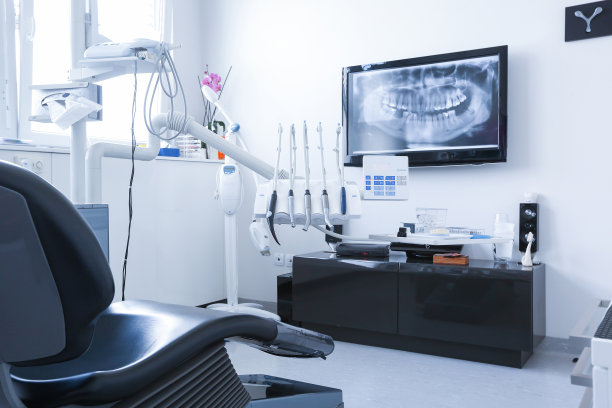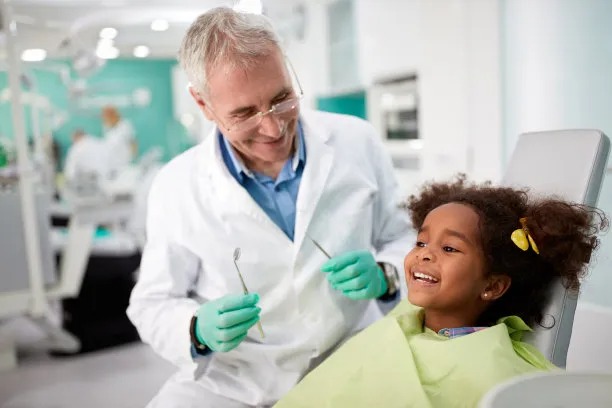Summary: Tooth extraction is a common dental procedure, but ensuring proper care before and after the extraction is crucial for optimal recovery. This article explores the significance of pre-extraction preparations, post-extraction care strategies, the role of professional dental advice, and the importance of maintaining overall oral health during the recovery process. A comprehensive approach to dental care can significantly reduce complications and enhance healing, making it essential for individuals undergoing tooth extraction.
1. Importance of Pre-Extraction Dental Care

Preparing for a tooth extraction begins well before the procedure. Consultation with the dentist is vital, as it establishes a baseline for health status and allows the dentist to assess any potential complications. Discussing medical history, current medications, and allergies can help tailor care to the individual’s needs, minimizing risks.
Additionally, maintaining good oral hygiene before the extraction is crucial. Brushing and flossing regularly ensures that the mouth is in a clean state, reducing the risk of infection post-surgery. A clean environment can also contribute to smoother healing, as bacteria present in the mouth can lead to complications if not adequately managed.
Finally, diet plays a significant role before the procedure. Eating a balanced diet rich in vitamins and minerals strengthens the immune system and prepares the body for recovery. Its advisable to avoid alcohol and tobacco, as these substances can hinder the healing process and increase discomfort after extraction.
2. Strategies for Post-Extraction Care
After a tooth has been extracted, following specific post-operative care strategies is essential for recovery. The first few days are critical, and patients should follow their dentist’s instructions rigorously, managing bleeding effectively. Keeping the gauze in place for the recommended period and avoiding strenuous activities will help in maintaining blood clots that promote healing.
Pain management is another crucial aspect of post-extraction care. Dentists often prescribe pain relief medications or recommend over-the-counter options. Its essential to follow directions on dosage and timing to ensure comfort and avoid potential side effects that could delay recovery.
Hydration is equally important post-extraction. Drinking plenty of fluids helps in maintaining bodily functions, but patients should be careful to avoid using straws. The suction created can dislodge the blood clot, leading to a condition known as dry socket, which can be painful and prolong recovery time.
3. The Role of Professional Dental Advice
Seeking professional dental advice before and after a tooth extraction is paramount. Dentists provide tailored recommendations based on individual conditions, and their expertise helps in preventing complications. They can assess the extraction site during follow-up visits, ensuring that healing is proceeding as expected.
Moreover, professional advice extends to understanding signs of complications. Patients should be aware of symptoms such as excessive bleeding, persistent pain, or swelling, which may signify infection. Immediate communication with the dentist can lead to timely interventions that prevent worsening conditions.
Lastly, regular dental check-ups after recovery can ensure overall oral health maintenance. These visits help identify any underlying issues, allowing for proactive treatment and ensuring that patients do not face further extractions in the future.
4. Importance of Overall Oral Health
Maintaining overall oral health plays a significant role in successful recovery after tooth extraction. Patients should focus on adopting preventive care practices, such as regular brushing and flossing, to avoid plaque buildup and subsequent dental issues. Good oral hygiene habits set the stage for a healthier mouth and contribute to a faster recovery.
Moreover, a well-balanced diet rich in calcium and vitamin D strengthens bones and teeth. Foods such as dairy products, leafy greens, and nuts support overall oral health and can aid in the recovery process following an extraction by facilitating new tissue development.
Lastly, avoiding harmful habits like smoking or excessive alcohol consumption is vital. These practices not only hinder recovery but can also contribute to further dental issues, rendering any past extractions moot. Embracing healthier lifestyle choices will yield long-term benefits for oral health.
Summary:
To ensure optimal recovery from tooth extraction, it is essential to prioritize proper dental care before and after the procedure. Pre-extraction preparations, including consultations and maintaining oral hygiene, set the tone for a smoother recovery. Post-extraction, its critical to follow care strategies and professional advice to avoid complications. Lastly, an emphasis on overall oral health through good practices and lifestyle changes can positively influence the healing process.
This article is compiled by Vickong Dental and the content is for reference only.
Vickong Dental
Vickong Dental is a large medical group established in Hong Kong in 2008 by professors from well-known medical universities in Guangdong and Hong Kong, as well as medical doctors from key national '985' universities (including Master's supervisors and senior professors). The chain of branches brings together expert dentists with PhDs and Master's degrees from Hong Kong and Mainland China, committed to providing high-quality dental treatment.
"Vickong Dental Practices the University Motto of 'Healing and Serving Society,' with a Stable Operation for Sixteen Years. It Has Been honored with Hong Kong Enterprise Leaders's Choice,' and is a Global Trusted Implant Center for the Nobel Implant System. Recommended by Hong Kong Metro Broadcast and Guangdong Television, it Serves Customers from Over Thirty Countries and Regions, Gaining the Trust and Favor of Citizens from the Guangdong-Hong Kong-Macau Greater Bay Area and Surrounding Cities.

Thousands of customers' unanimous praise
The most recognized and highly recommended dental service by customers in the Guangdong-Hong Kong-Macau Greater Bay Area
We Ensure You Receive Detailed Care and Attention Here
Hong Kong standards, Shenzhen prices, Your Trusted English-speaking dentists

Vickong Dental Medical-Grade Instrument Disinfection Process
Vickong Dental Medical-Grade Instrument Disinfection Process

Vickong Dental Chain: A Warm and Comfortable Environment for Treatment






Appointment Hours

Q&A
Why choose Vickong Dental?
Vickong Dental practices the university motto 「Medicine to Benefit Society」, with each branch bringing together highly qualified dentists with doctoral and master’s degrees from Hong Kong and the Mainland, and has maintained seventeen years of steady operation。Recipient of 「2024 Hong Kong Enterprise Leaders Brand」, 「2025 Hong Kong Enterprise Leaders Brand」, a Nobel Biocare Global Trusted Implant Center, and a brand recommended by Metro Radio Hong Kong and Guangdong TV。
To date, we have served customers from more than thirty countries and regions,earning exceptionally high word-of-mouth recognition and trusted recommendations from residents across the Guangdong-Hong Kong-Macao Greater Bay Area and surrounding cities
We have eight major branches in Zhuhai、Shenzhen,and a consultation and service assurance center in Hong Kong,so you can book a free consultation at any time for any questions,which is very reassuring.
If I do not accept the quotation after the CT scan, will I be charged??
No! As long as the actual treatment has not started, you will not be charged any fees.
Will there be any additional charges during the treatment process?
No, there won’t be any additional charges. Before treatment begins, we will clearly explain the treatment plan and its corresponding fees. Only after the patient agrees and signs the consent form will we proceed with the dental service.
Can I pay in Hong Kong dollars?
Yes. Vickong Dental accepts payment in Hong Kong dollars. The amount will be converted based on the exchange rate of the day, and the applicable rate will be clearly communicated to you in advance.
Can I reschedule my appointment at any time?
Yes. Please contact us via **WeChat** or **WhatsApp** as early as possible, providing your original appointment time and details, along with your preferred new date and time slot for rescheduling.













